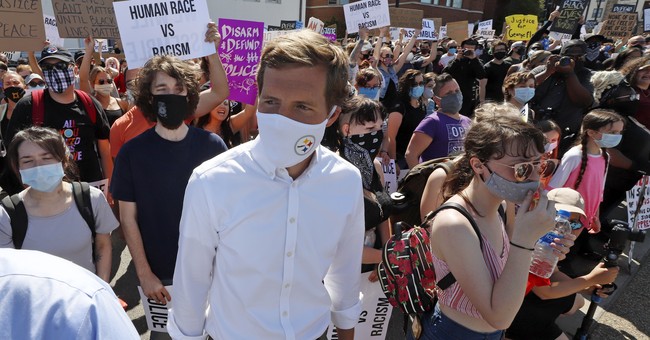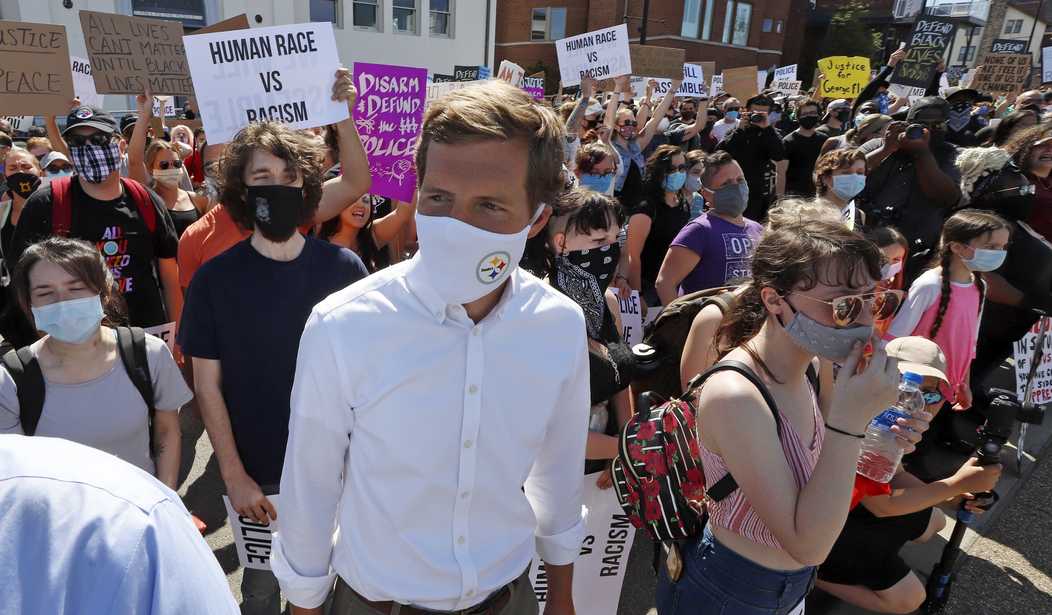
If one would listen to many of the experts and much of the self-praise centered around “the Paris of Appalachia”, it would be self-evident why Pittsburgh is often called “America’s Most Livable City” – a moniker that gets bounced around in southwestern Pennsylvania. Over the course of the past 30 years, Pittsburgh has taken pride in the city’s #2 ranking nationally as recently as 2018 as well as its #1 “most livable” status in 2014, with similar designations as far back as 1985.
Looking at the hard-and-fast statistics, perhaps it makes sense for the Steel City to be a barometer for the rest of the nation to measure itself against. Pittsburgh’s cost of living is one of the best nationally. UPMC Children’s Hospital of Pittsburgh has been recognized as one of the very best for decades for its innovation and skill. Even during the Great Recession last decade, Pittsburgh was deemed one of the few cities that weathered the storm the best.
Glancing over at the softer civic aspects of the city, the City of Bridges (i.e., a place with over 400 bridges, making it the city with the most bridges in the world, including Venice) seems like a bastion of harmony. Here, some believe liberal-leaning leadership coupled with blue-collar values should blend into a lifestyle that promotes stability and consistency for all while eschewing untenable policies and social positions. The homogenously-political Democrat-led government has ushered in a reality of bike lanes throughout busy streets and free trolley rides to football games. It hosts one of the most notable gay pride parades annually each summer in downtown Pittsburgh. For a city of its size, it claims a symphony and other notable cultural attractions. And, of course, the former “City of Champions” brings Steelers Nation together each fall, while “Sid the Kid” and “Geno” have raised Lord Stanley’s Cup three times since 2009 – with both sports teams bringing the city together in crowd-surfing jubilation.
Yet, while this interesting mix might lend a region to pat itself on the back too much as a modern story of successful civic renewal, the actual confluence of political, cultural, and socio-economic realities at the confluence of the Allegheny and Monongahela Rivers belies the purported tenets of the region. Actually, deep-seated challenges that have gripped the region for years – and now our nation as highlighted in 2020 – are increasingly becoming highly-visible for the world to (finally) see.
Police misconduct leading to horrific injuries to innocent Black men, leading to millions of dollars in settlements, a bill footed by taxpayers. Outdated domestic policies remaining in place and continuing the tensions, despite Democrats’ hollow calls for “racism as a public health crisis” without advancing substantive policy changes by the Democrat-dominated political landscape. “Civil Saturday” protests leading to protesters being pepper-sprayed outside of the Mayor of Pittsburgh’s home. Demonstrators rioting and harassing patrons (including White, pro-BLM supporters), alienating many fighting for civil rights with their inappropriate actions. The rise of Democratic Socialists’ influence in public office and political circles. Hate crimes including the horrific Tree of Life shooting in 2018 and the racially-motived murders by Richard Baumhammers. The “City of Bridges” having one of the widest divides of quality-of-life between Blacks and Whites in the nation, highlighted by a grim reality confirmed by a recent study: African-Americans moving from the “Paris of Appalachia” immediately improve all aspects of their quality-of-life upon settling in a new region. Healthcare disparities – especially for Black women on items including infant mortality – remain inexcusably high. A region with some of the best institutions of higher learning (including Carnegie-Mellon University and Pitt) also carries significant academic performance gaps along with controversies concerning various school administrators — from wasteful spending to unscrupulous decisions such as an administrative trip to Cuba for an “expedition”. Even its LGBTQ coalition has faced divisive strife, with one former leader being arrested on felony charges and others being accused of racial discrimination and financial mismanagement, tensions that helped accelerated the dissolution of one of the movement’s most prominent organizations.
It’s no wonder: despite all of the flowery civic designations from publications and stat-seekers, Pittsburgh’s population continues to decline amid these unresolved, ongoing issues. The reasons why are obvious. Haughty and hollow pride in values that are subjectively applied to few, not all. Dedication to the colors of a flag (e.g., the black-and-gold of Pittsburgh) rather than to character and convictions behind our civic persona. Peace and harmony – amid crippling disparities — that mean more to civic leaders than peace and justice that reflects the spirit of our founding documents. Political imbalance and inconsistency that reliably fail to yield tangible, long-term results. Double talk from leaders that encourages partisan-driven protests and offer civic partnerships during election time but doubles down on the status quo when discomfort arises and money is on the line. Citizens who give an un-reciprocated love to a region that simply does not love them back.
Many people make these aforementioned flaws as characteristics of Donald Trump’s America, making Pittsburgh susceptible to these problems as a result. Yet, these woes have been painfully evident and noted in Pittsburgh for quite some time, a city that has not had a Republican mayor since 1934, has not had a Republican member of Congress since Rick Santorum, and with Trump as President since 2017.
The dissension, division, and disillusionment that have been in the air throughout America in 2020 have been found in the river water of the Pittsburgh region for a while now. If America is on the verge of cultural civil war due to the socio-economic, racial, and cultural pains that we endure in this pandemic-driven year, then Pittsburgh is a shining example of a city in the hills that reflects our now collective lot.
The woes we must address and resolve in our crumbling nation are not rooted exclusively in conservatism, Republican politics, or Trump. Just the same, they are not rudimentary in our core as Americans (despite what some on the left wrongly repeat). These challenges – now stuck in the craw of cities around the nation, but actively choking out potential in Pittsburgh – are forged through the failures of sound leadership and adherence to the best of our Constitution. Necessary agape for our fellow citizens has been replaced by pleasantries and pithy slogans that try to cover up blind spots. This is not merely a partisan flaw; it is a contemporary cancer that has led to ambitious politicians (such as US Senator Amy Klobucher) allowing abusers to remain free and elected officials piecemealing approaches to social woes rather than tackling and defeating them.
Unleashing our economy through fully empowering its innovation and tact is a great start – both in Pittsburgh and throughout America. Embracing talents from all corners of the nation through education reform and economic options (including pathways for more small business development and business re-training) are necessary to close the remaining gaps in employment that occurred since the height of pandemic-driven layoffs. Leveraging the diversity of thought, policy, and backgrounds must be a natural remedy to replace the “…you ain’t Black…” us vs. them dynamic that has gripped the civic fabric over harmful political stances including school choice and life issues. Standing up for justice and civic successes are needed long after the latest protest dies down and before the next series of tragedies, shootings, and riots spark new tensions.
If it is most American of us to extol how great the United States is while overlooking and under-engaging the ongoing and deep-seated problems we continue to struggle with, then my beloved hometown is a most American city, indeed. Yet, amid great challenges, we have a chance in 2020 to forge a great new path. If 2020 has been our collective 1968, then perhaps with vision, faith, and commitment, we can get towards our “morning again in America” moment soon – making Pittsburgh and our nation “someplace special” for all.













Join the conversation as a VIP Member